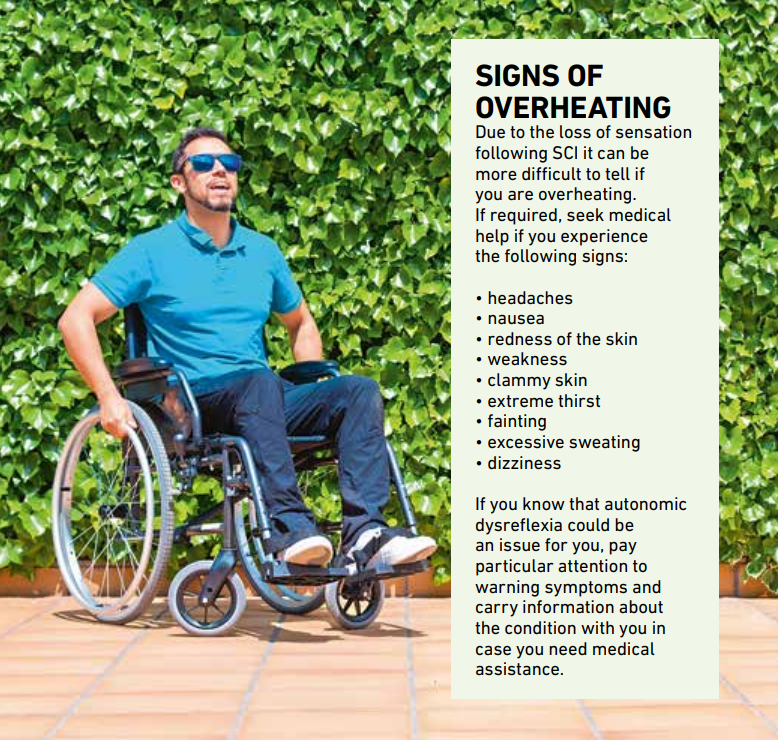News
Staying safe in the sun
On those few days of summer sun that we get in the UK, it’s always tempting to dust the BBQ off, get outside and soak up some rays.
But while getting fresh air and vitamin D is so good for us, both physically and mentally, it’s important to take measures to keep safe in the sun as we all head outdoors once again.
Here are some of our top tips for staying healthy in the sun, courtesy of our specialist occupational therapist, Susie:
Skin inspection
Following a spinal cord injury, skin can be more vulnerable and so carrying out regular skin inspections will help to identify any potential problem areas. When bathing, dressing, or completing stretches, take time to check your skin.
If you notice skin damage, seek some medical advice. You may also be wearing summer clothes which might fit your body differently – it is worth checking whether seams or buttons may cause pressure on your skin.
Temperature
Following a spinal cord injury, some people will be unable to regulate their body temperature effectively. Make plans for ensuring you get plenty of access to cooler temperatures throughout the day. Keep the air temperature of your house and car cool so you can escape the heat. If you plan to exercise, do it either earlier or later to avoid the hottest part of the day which is often 11am – 3pm.
Equipment
Think about where you leave or store equipment such as wheelchairs and cushions. The frame, footplates and armrests of a wheelchair can become hot, and these can burn your skin if you have reduced sensation due to your SCI. Splints, orthoses and walking aids can also overheat. Try to store these somewhere cool or cover them with a towel if you are by the beach or pool.
Hydration
Limit the amount of caffeine and alcohol you consume in the hot summer sun as they will increase the likelihood of dehydration. Ice lollies, mocktails and plenty of water are all great options for keeping you properly hydrated throughout the day.
Sunscreen
Use a sunscreen to protect your skin, even on cloudier days. Remember areas such as hands, feet, ears and the back of the neck. Scar tissue is also more sensitive to burning so apply generously to any scarred areas you may have that are likely to be exposed to the sun. Remember to reapply often, particularly after contact with water.

